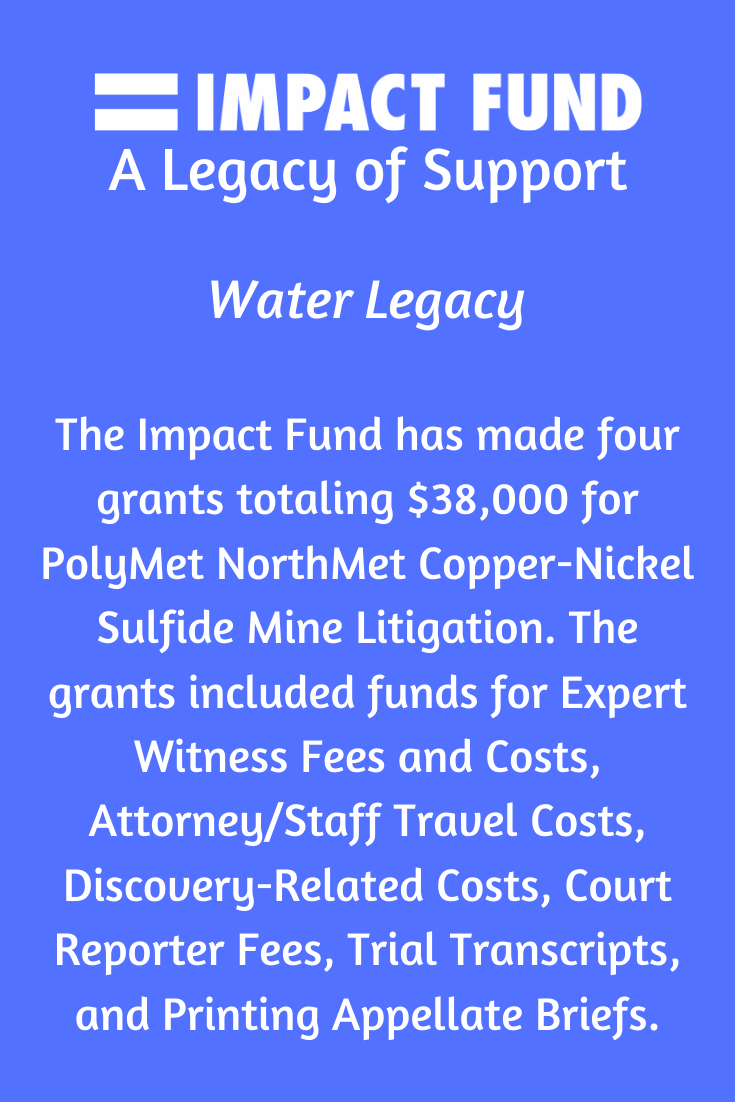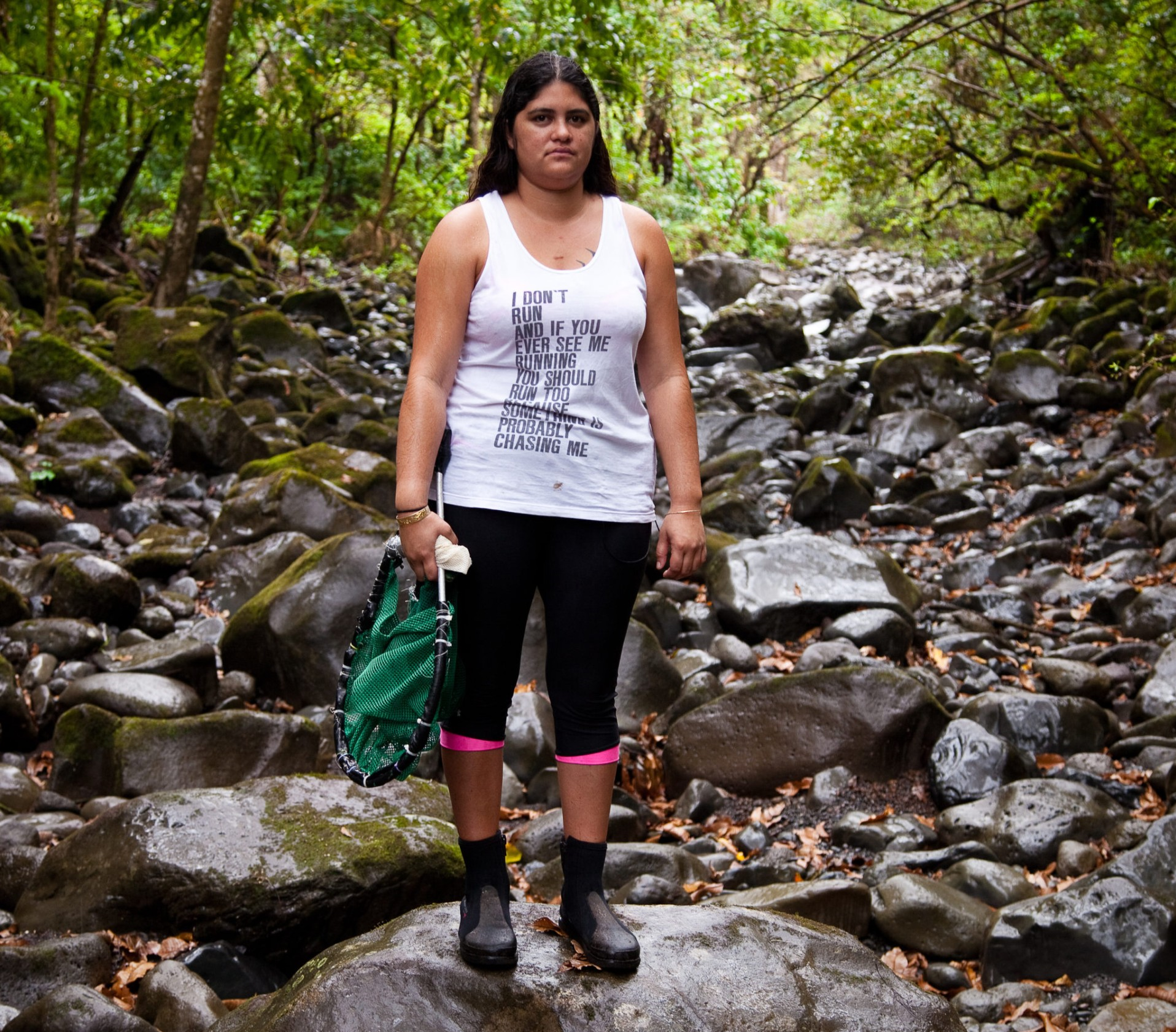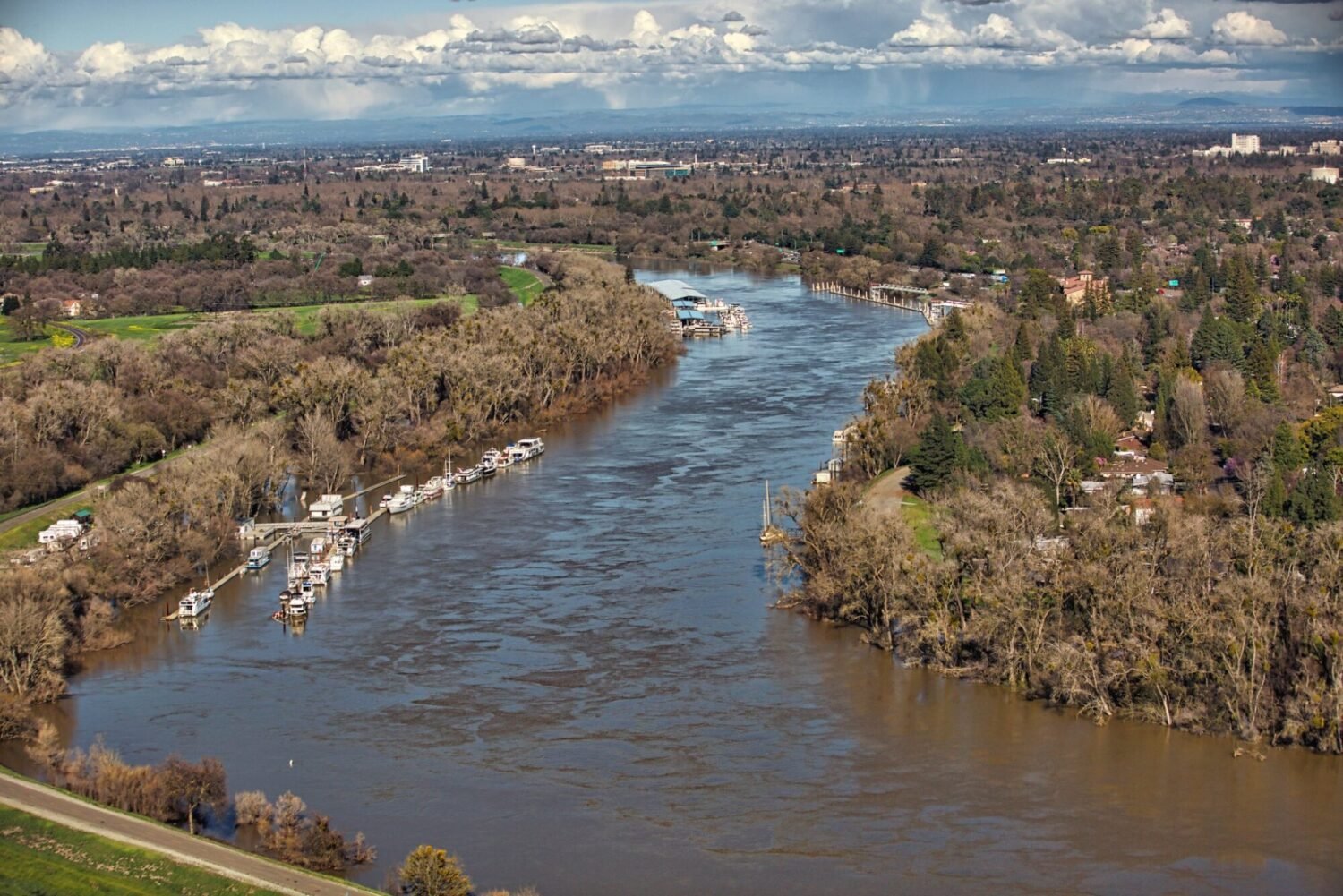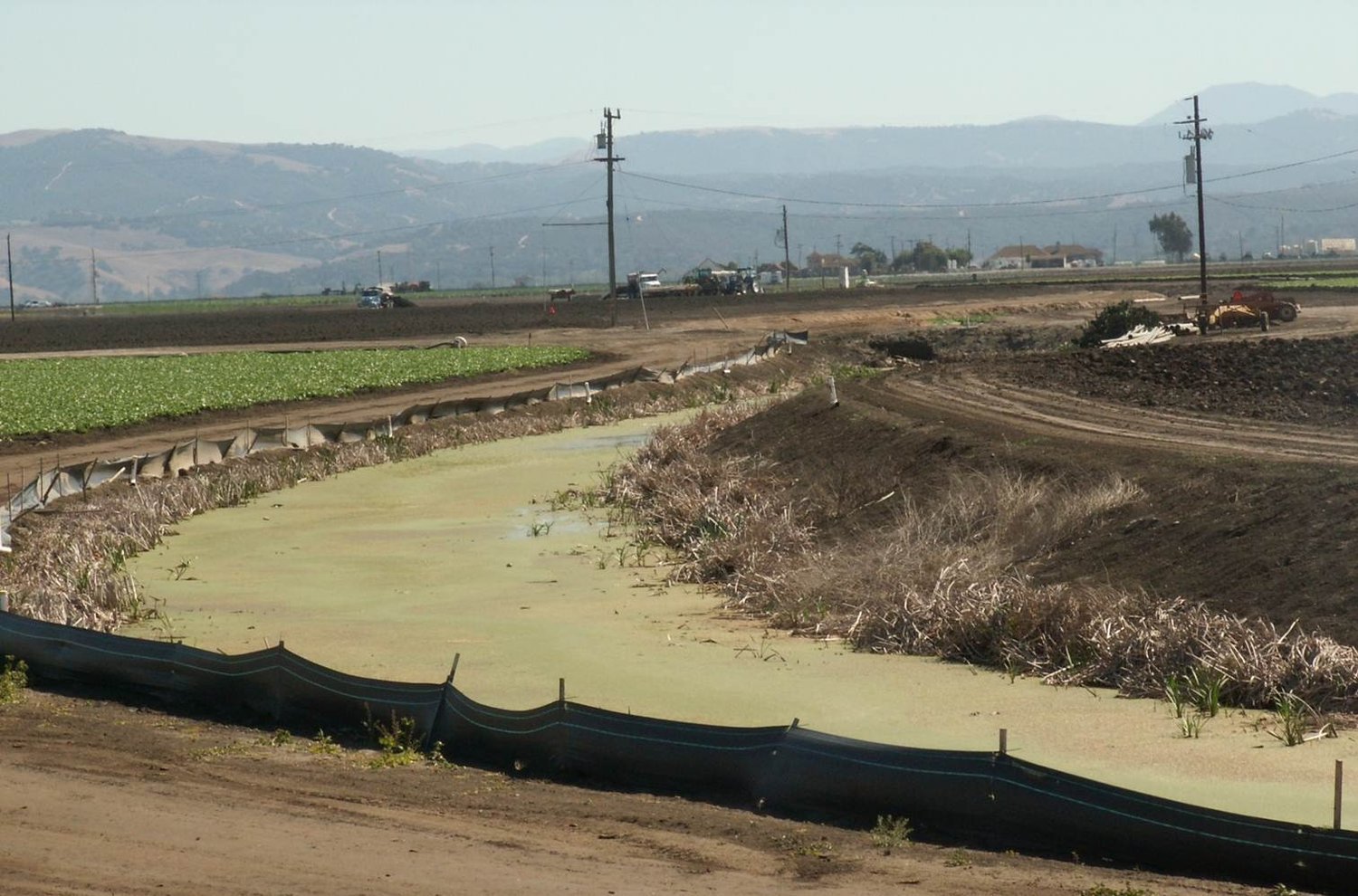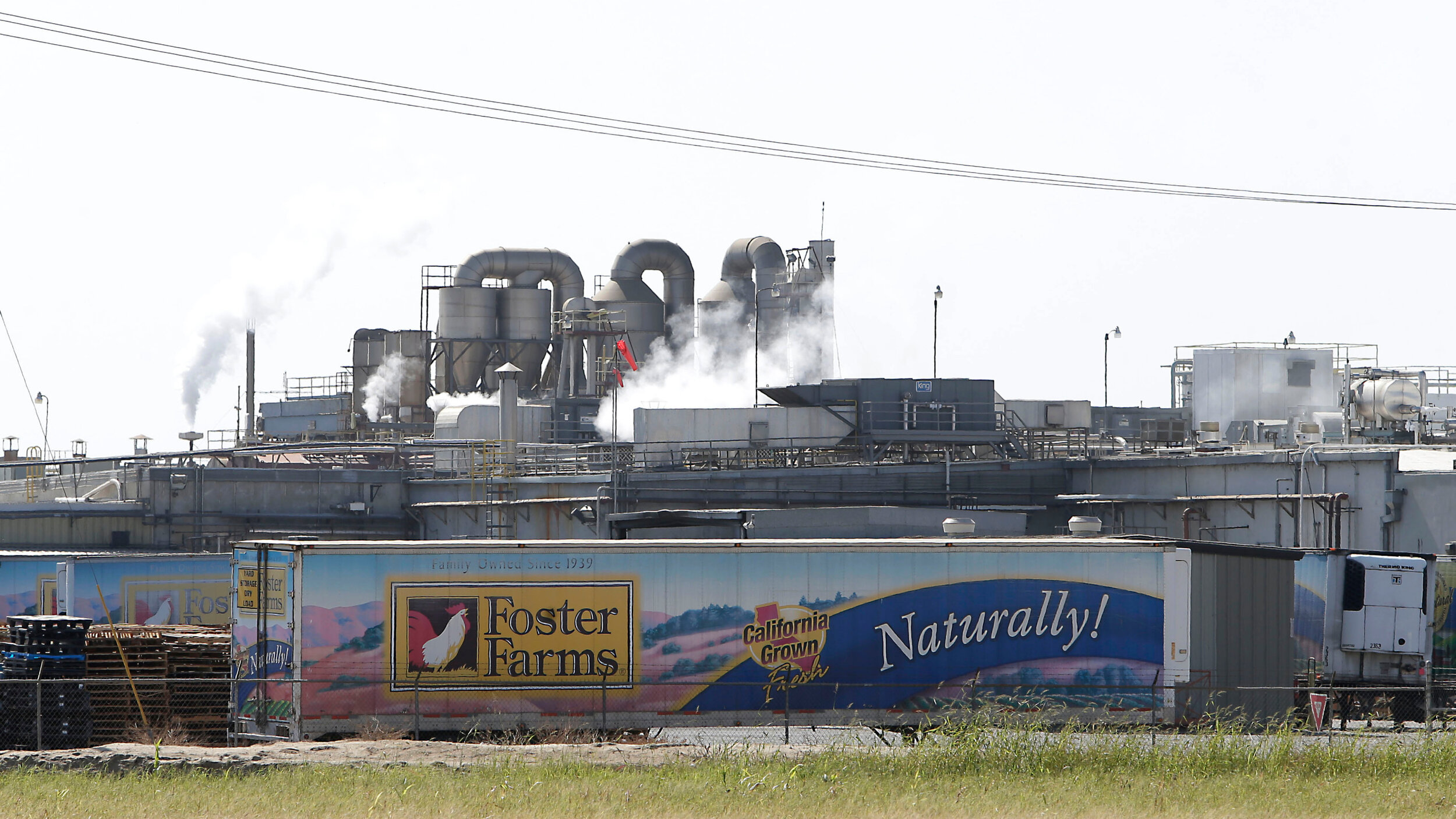Environmental Justice Appeals Court Victory in Minnesota Paves The Way To Hold PolyMet Accountable.
Paula Maccabee, Advocacy Director and Counsel, WaterLegacy
In Minnesota, we’ve been told the tall tale that our state has some of the most stringent environmental laws in the nation and that these laws keep our water clean. It’s easier to believe in this story than to question it. So, when the PolyMet proposed Minnesota’s first copper-nickel sulfide mine, many thought, “better here than elsewhere.”
For the past eleven years, WaterLegacy and our allies have questioned, researched, and challenged agency support for the PolyMet mine, finding out along the way how Minnesota’s commonly-told story of environmental protection is simply a myth. As in many other states, industrial pollution and corporate agriculture have contaminated many of Minnesota’s waters. And there is no existing mining pit or tailings facility in Minnesota that doesn’t leak pollution exceeding Minnesota water quality standards.
PolyMet’s tailings waste dam uses the same cheap design as the tailings dam that catastrophically failed in Brazil in early 2019, killing over 250 people.
Photo credit: New York Times
The proposed PolyMet mine project, located at the headwaters of the St. Louis River, the largest U.S. tributary to Lake Superior, would destroy or impair more than 1,000 acres of wetlands and leach toxic metals like mercury, lead and arsenic into our waters. PolyMet’s tailings waste dam uses the same cheap design as the tailings dam that catastrophically failed in Brazil in early 2019, killing over 250 people. Glencore recently purchased the majority of PolyMet, becoming the parent company of the project, but they are not on any of the PolyMet mining permits. So, if PolyMet pollution leaks or its waste dam collapses, Glencore could walk away without responsibility.
There are additional reasons to question the PolyMet project. No agency has conducted a health impact assessment, no legislative hearings have been held to assess the adequacy of the laws that govern mining in Minnesota, and all state permitting decisions have been made behind closed doors, with no unbiased decision-maker weighing the scientific evidence of risk.
But the Courts are beginning to provide protection for our communities and require that permitting decisions be made based on science and the rule of law.
In January 2020, the Minnesota Court of Appeals ruled that the permits issued by the Minnesota Department of Natural Resources (DNR) for the PolyMet project need a contested-case hearing on issues like dam safety and financial assurance for post-operation cleanup, reversing the permit to mine and dam permits. PolyMet and the DNR have since filed petitions for review by the Minnesota Supreme Court. WaterLegacy and our allies are hard at work to defend our Court of Appeals victory and the rights of citizens to open and fair contested-case hearings before any PolyMet permits can be re-issued.
The EPA’s suppressed comments warned that PolyMet’s water pollution permit would violate the Clean Water Act
There is more to this story. Last summer, the Minnesota Court of Appeals sent another PolyMet permit – the water pollution permit issued by the Minnesota Pollution Control Agency (MPCA) - to district court to investigate whether “procedural irregularities” affected the MPCA’s permit decision. In hearings, this January, the MPCA admitted to asking the U.S. Environmental Protection Agencv (EPA) not to comment on the draft PolyMet water pollution permit. Both MPCA officials and the now-retired chief of EPA’s water permitting branch testified that putting comments in writing was normal procedure and that neither MPCA nor other state agencies had ever before requested that EPA withhold comments they’d written on a draft water pollution permit. WaterLegacy’s investigation and court hearings revealed that the EPA’s suppressed comments warned that PolyMet’s water pollution permit would violate the Clean Water Act and Minnesota water quality standards.
In the PolyMet case, it seems clear that Minnesota agencies have denied scientific evidence of risk, circumvented laws, and used irregular procedures to make approval of copper-nickel mining permits cheaper and easier. WaterLegacy and our allies are working around the clock, exposing the truth, and demanding that state agencies protect the health of Minnesota’s waters and communities.



